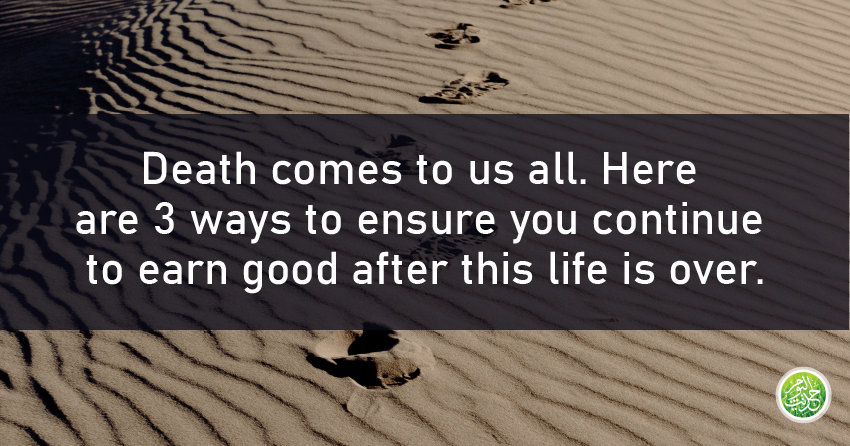Al-Ghazali on the Secrets of Fasting

By Rami Koujah
To claim that the act of fasting is more than mere abstention from food, drink, and intimacy with one’s spouse is a cliché. Despite being aware of this, for many of us, the daylight hours of Ramadan remain drawn-out moments of thirst and hunger. Certainly, many of us feel the spiritual ecstasy after satiating ourselves, whether it is by praying tarawīh (nightly Ramadan prayer) or enjoying qiyām (late-night prayer) at the masjid (mosque). The night has become the focal point for many, and, not to undermine its significance, most people do not appreciate the spirituality that can be enjoyed during the day. After all, it is doubtlessly easier to appreciate an act of worship when not burdened by the grueling fast. To remedy this issue who better to turn to than Abū Hāmid al-Ghazālī (taken from Ihyā’ ʿUlūm al-Dīn, pp. 419-430).
In his magnum opus, Ihyā’ ʿUlūm al-Dīn, al-Ghazālī discusses the “secrets” of fasting and the method by which one can attain them and fulfill the objectives of fasting. For the sake of space, we will limit ourselves to a few points he mentions. He begins by stating that the way by which the devil influences the hearts of people is through their desires (shahawāt). Our desires, namely, are food, drink, and intimacy. It is by overcoming one’s desires that one finds refuge from the devil and tranquility. Al-Ghazālī deems this point central to realizing the objectives of fasting.
Al-Ghazālī quotes the well-known hadīth (tradition) in which the Prophet SAW says that God, subhanahu wa ta`ala (exhalted is He), said:
“All of the actions of the son of Adam are for him, except for fasting. [Fasting] is for me and and I reward for it [what I please].”
(Sahih Muslim)
Why does God (SWT) say that fasting, to the exclusion of other acts of worship, is for Him? Is not our prayer and charity for His sake as well? Al-Ghazālī writes that God (SWT) has given the action of fasting an extra degree of honor, by attributing it to Himself, in two ways
Firstly, fasting is a hidden act of worship; no one is actually able to see you fast. This fact guards one’s intention against being corrupted, unlike prayer, charity and, Hajj (pilgrimage).
Secondly, fasting is an act by which one subdues the devil. Recall, the devil’s capacity is only exercised via one’s desires. By abstaining from food, drink, and intimacy, a Muslim is able to control his desires and hinder the effects of the devil. By defeating the devil, one aids in bringing victory to God (SWT), i.e., God’s religion:
“O you who have believed, if you support Allah, He will support you and plant firmly your feet”.
(Qu’ran 47:7)
In the commentary of al-Jalālayn, we find that bringing victory to God (SWT) means bringing victory to His religion and Messenger ﷺ.
After elaborating on the merits of fasting, followed by the rules of fasting, al-Ghazālī discusses the methodology by which we can realize the fruits of fasting.
Fasting is practiced at one of three levels:
- The level of the lay people,
- The level of the elect, and
- The level of the elect of the elect.
The fasting of the laity, the lowest level of fasting, involves merely following the outward rulings of fasting. Fasting at the next level up involves fasting with one’s limbs (the present article will elaborate on this level as it is the most relevant). The third level of fasting involves being physically, spiritually, and intellectually occupied with one’s lord without breaking consciousness from this state for even a moment. This includes fasting with one’s heart and mind.
The second level of fasting involves six things:
1. Fasting with one’s sight.
One should abstain from looking at things that are disliked (makrūh) or illicit (harām). This includes things that distract one’s heart from the remembrance of God (SWT).
2. Fasting with one’s tongue.
While fasting, one should not lie, backbite, slander, use obscene language, quarrel with others, speak insincerely, or engage in idle chatter. Rather, one should try to spend more time being silent, remembering their Lord, and reciting His book.
3. Fasting with one’s ears.
One should refrain from listening to things that are disliked (makrūh) or forbidden (harām). Al-Ghazālī mentions that anything which is forbidden to say is forbidden to listen to. In the Qur’ān, God juxtaposes those who engage in listening to lies with those who consume what is unlawful [5:42].
4. Keeping the remainder of one’s body parts (e.g. hands, feet) from engaging in blameworthy acts.
Hopefully, this is not an issue for any of us, but speaking to such a wide audience, al-Ghazālī warns people of consuming from that which is unlawful. After all, doing so defeats the whole purpose of fasting.
5. Do not overeat.
Everyone knows they shouldn’t, but we all do. Al-Ghazālī advises against overeating when it comes to breaking one’s fast. After all, the point of fasting is to control one’s desires. What has one gained if they end up binging in one (or several) meals and make up for what they’ve managed to hold off on? Moreover, as al-Ghazālī mentions, many of us deck out our dining tables with such an assortment like we are trying to eat the food pyramids of Giza. And you know someone is going to get the wrath if the samosas run out. So much for keeping the devil at bay.
6. After breaking one’s fast, one should balance a feeling of hope and fear.
One should be hopeful that one’s fast has been accepted by God yet also be fearful that the fast may have been lacking. In short, one should not become overly confident because the quality of one’s fast will slowly dwindle.
Yes, fulfilling the outward aspects of fasting will make one’s act valid. But we should be concerned with more than just that, as al-Ghazālī mentions. At a higher level, in consideration of the Hereafter, we should be concerned with the act being accepted and the objectives being fulfilled, in addition to it being valid. In al-Ghazālī’s understanding, the objective of the fast is embodying one of the attributes of God, al-Samadiyya, namely, being resistant, enduring, and mastering our desires. In this way, we follow the example of the angels who are above having desires.
The beauty of Ramadan is not only to be found after the sun has set. The struggles of fasting have their own share of beauty and spirituality. As al-Shaykh Shabīr Ahmad al-ʿUthmānī writes in his renowned commentary of Sahīh Muslim:
we bear the toils of fasting for the sole purpose of gaining God’s pleasure
(Shabīr Ahmad al-ʿUthmānī, Fath al-Mulhim).
Finally, al-Ghazālī leaves us by posing a question we should all ask ourselves. Fasting, and every act of worship included, has both an outward and inward realization. Will we be satisfied with fulfilling the outward, or will we strive towards realizing the inward beauty?
Brought to you by Suhaibwebb. Read more here.
Since You’re Here… we have a small favour to ask.
In these extraordinary times, millions rely on HOTD for daily uplifting & inspiring content. Established since 2009 and with your kind support we’ve seen readers elevate their Imaan & strive for better on a daily basis. We’re committed to keeping our content freely available and open for all readers. Every contribution, however big or small, makes a difference and help us spread knowledge to millions daily
HOTD is something special, it’s a place where people can come to be inspired, to renew their faith, to learn and share knowledge, to fall in love with our faith and also our Prophet (peace and blessings be upon him and his family).
All content on HOTD is free. We believe what we do in this life builds for the next one and we work tirelessly with the aim to please Allah and inspire the global Muslim community as
well as providing information and inspiration for anyone interested in Islam. We simply cannot do this without your support and your support helps us continue our services.
If there were ever a time to join us, it is now. You can support HOTD and help sustain our future. Support Hadith of the Day and make a one-off donation or give regularly from as little as £10 a month Jazak’Allah Khayr – whatever you donate will come back to benefit you Insha’Allah as whatever is spent in the way of Allah is an investment in the future and the next life. Thank you.
















































































